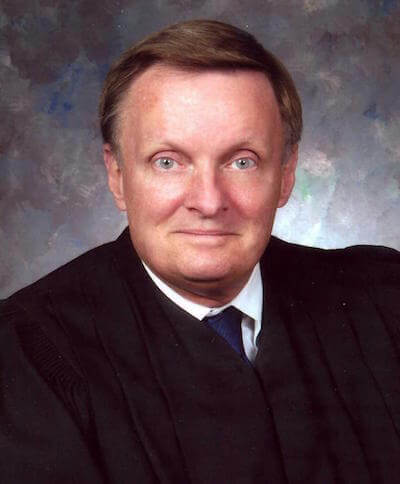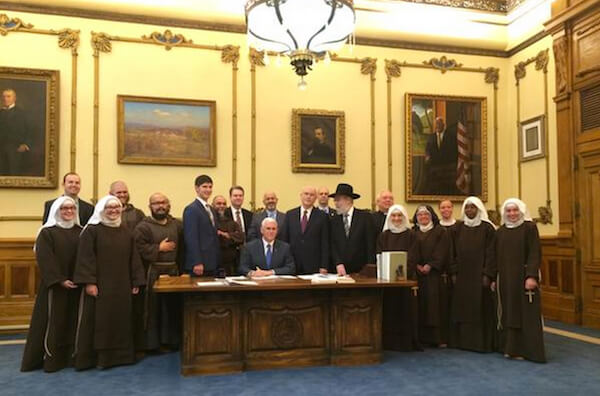The LGBTQ community never had any illusions about Donald Trump. Despite the billionaire TV celebrity having lived in Manhattan his entire adult life and mainstream media suggestions that he is the friendliest Republican president to date, we had his number from the start. That’s why only 14 percent of us gave him our vote on November 8 — an anemic showing even by GOP standards.
In the new administration’s earliest days, there was widespread concern that the president was set to overturn President Barack Obama’s 2014 executive order requiring nondiscrimination protections for LGBTQ employees of any company engaged in a contract with the federal government. The darkest rumors had Trump even rescinding sexual orientation protections in federal government employment that date to Bill Clinton’s administration.
None of that happened, and according to the New York Times, that was thanks to the intervention of Ivanka Trump and her husband, Jared Kushner, who is a senior advisor to his father-in-law. The chatter about Ivanka and Kushner has a certain “after all, they’re people like us” complacency about it, especially coming from the Times.
LETTER FROM THE EDITOR
Dangers on this score — particularly in the form of an executive order spelling out broad religious exemptions that could allow faith-affiliated groups, businesses, individuals, even government employees to opt out of nondiscrimination requirements generally applicable in society — are still very much out there. And there is the odious First Amendment Defense Act, which would codify such opt-outs and Trump has said he would sign. Throughout the campaign and since, the president has pledged fealty to social conservatives pushing such measures to gut decades of progress on LGBTQ equality, and important figures on the right are counting on their payday.
The nomination of 10th Circuit Court of Appeals Judge Neil Gorsuch to the Supreme Court seat vacated by last February’s death of Antonin Scalia did nothing to dispel fears on this point. In two significant rulings, including on the Hobby Lobby corporation’s claim to a religious exemption from contraceptive coverage requirements of the Affordable Care Act — an overreaching claim that, incredibly, was later upheld by the Supreme Court — Gorsuch sided with the argument that people and institutions citing the free exercise clause of the First Amendment have expansive rights to depart from nondiscrimination and other requirements that citizens and business entities must otherwise observe.
Like Scalia, Gorsuch is also a constitutional originalist, loath to accept judicial interpretations that stray from what he sees as the intentions of the Founding Fathers nearly 250 years ago. And, in his writing outside the court, he has criticized progressive elements in society — read: women’s rights and health advocates and the LGBTQ community — that he says have relied on the courts rather than the political branches of government to advance their goals. In the Trump term to come, what recourse does our community realistically have other than the courts, even though the terrain there is likely to become less friendly rather than more?
Like Ivanka Trump and Jared Kushner, Gorsuch was recently the object of a Times profile essentially arguing we should not look to his jurisprudence and his writings, but rather to some of his friends. Again, after all, “they’re people like us.”
If the jury is out on any prospective executive action from Trump and Gorsuch’s record on specifically-LGBTQ issues is arguably thin, last Friday evening’s action by Attorney General Jeff Sessions, who has never made any bones about his dislike of queer people, was unambiguous.
In a notice to the Fifth Circuit Court of Appeals, the new AG said the Justice Department no longer wanted to proceed with a hearing on an August 2016 nationwide injunction from a federal court in Texas blocking the Obama administration’s directive that schools receiving US aid must allow transgender students access to bathrooms consistent with their gender identity.
This is huge, not only for the safety and dignity of transgender youth, but as a sign of a wholesale rejection of the former Obama administration’s increasingly aggressive embrace of the concept that LGBTQ people are already protected under federal law by the sex discrimination provisions of a wide array of statutes. The genesis of the policy on transgender student bathroom access was based on the conclusion that gender identity discrimination was a form of sex discrimination outlawed under the nation’s 1972 federal education law. Over the past several years, the Justice Department, the Department of Education, and the Labor Department — among cabinet agencies — as well as the independent, but presidentially-appointed Equal Employment Opportunity Commission had adopted the view that discrimination against a gay, lesbian, bisexual, or transgender person because of their sexual orientation or gender identity was necessarily discrimination based on their sex.
The implications of that conclusion resulted in the Department of Education’s student bathroom policy, in the Justice Department’s suit against the State of North Carolina for its notorious HB2, and in affirmative litigation by the EEOC to establish judicial precedent for its sex discrimination interpretation.
Federal courts have gradually come to the same view, though by no means uniformly. That progress could continue, though with Trump choosing the Supreme Court — and federal judges at all levels — ultimate success is far from guaranteed.
So, with the Trump administration just a month old — and despite it being, to a shocking degree, already in disarray — we know where the dangers are coming from. Social conservatives will press their ties to the new regime to ensure that nondiscrimination protections are hobbled to as great a degree as possible by spurious claims that religious sentiment trumps equality in the civic square. And conservatives will also work overtime to undercut any interpretation that the civil rights protections enjoyed by all Americans already — absent any new laws, like the stalled-out Equality Act — protect LGBTQ Americans from discrimination for simply being themselves.
















